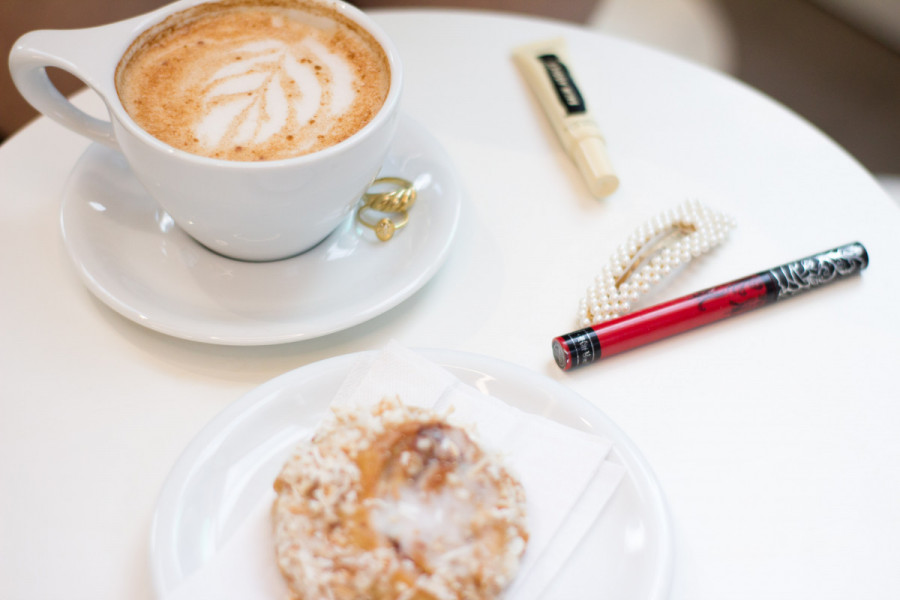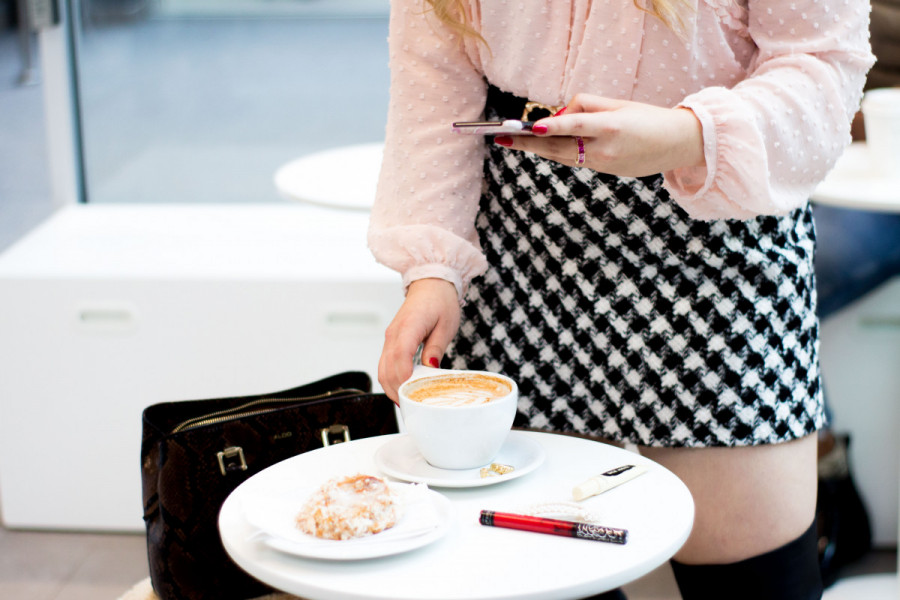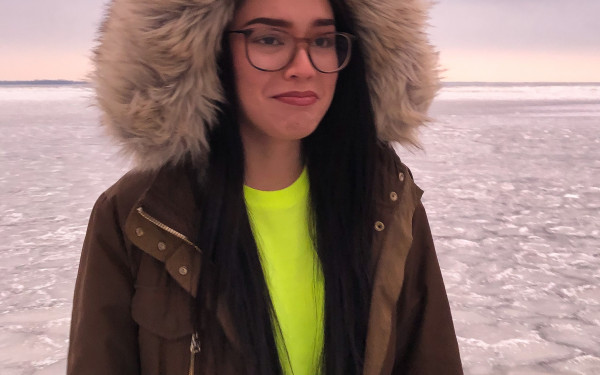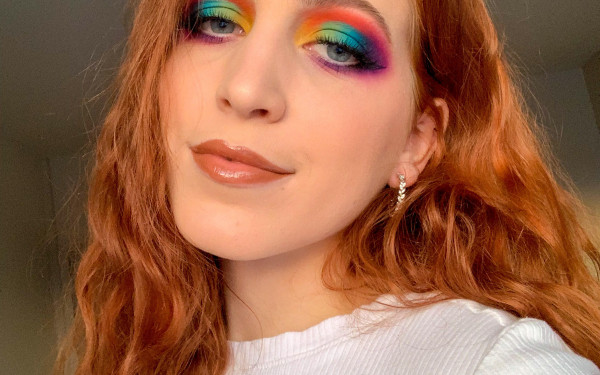A Look Into Montreal Influencers and Their Rise to Instagram Fame
What Goes on Behind the Posts
Amanda Wan (@itsamandawan), Alicia Waid (@aliciawaid), and Leah Mei (@missleahmei) are all rising stars in Montreal’s social media industry.
“I got started when I was about 13. I watched a lot of YouTube—Andrea Russet, Shane Dawson, people like that. I wanted to be like them,” said Wan, a 21-year-old communication studies student at Concordia.
“I went to an all-girls school, so it was already a lot of drama. When people found out I had a channel and everything, they mocked me. They made fun of me a lot, so that’s why I stopped doing it,” she said.
Since then she’s grown a thicker skin, which is essential for pursuing social media.
“When I got to CEGEP, I think that was the time when social media was getting bigger, so I was like, ‘Why not try again?’” she said. “It’s a way I’m able to express myself. I’m a very shy person, and this gives me a chance to be more open.”
With about 5,700 followers on both Instagram and YouTube, Wan calls herself a smaller influencer.
Waid, a 23-year-old Concordia communication studies graduate, grew a huge following soon after she started working as an influencer.

“Last August, I started to take [Instagram] more seriously, so I started doing research. I started using hashtags, which I was not doing before, engaging and building a community, following girls around Montreal,” she said. “It was really only once I started to do that that I realized the potential. How many girls are out there who are trying to pursue the same things, passionate about the same things as me?”
Before Aug. 2018, Waid had about 1600 followers. Today she has over 14,400. After blowing up, she started to treat social media like a job.
With that many followers, there are times Waid gets recognized on the street.
“I’m always confused, like ‘Do I know you? Do I not know you?’” she joked. “I’m shy, so for me it’s kind of a weird feeling when people are like, ‘You’re Alicia Waid from Instagram?’ I’m like, ‘Yeah? Yeah that’s me!’ It’s a bit awkward—it’s a bit unnatural for me.”
Mei started using Instagram when she was 18, “but it was just an anonymous blog at that time,” she said. She would post pictures of her outfits and vegan food she had made. She stumbled upon the social media industry after her friends encouraged her to pursue the field.
She was never one to be very involved in social media, and was forced to make a Facebook account when she was in secondary five—so she could be added to a group to make sure no one got the same prom dress.
“I’ve always been creative, I’ve always loved fashion. I used to sew dresses, […] I’ve always loved painting, drawing, stuff like that.”
While her creative streak pulled her to the industry, the people she’s met along the way have kept her interested.
“It’s hard because I feel like sometimes I lose the authenticity that I first had.” —Leah Mei
“I’ve never met them in person, but they talk to me every single day. The people are really cool. […] It’s nice to make those connections.”
Even though they’ve all had great experiences with other people in the industry, Wan, Waid, and Mei have all learnt to be wary of other influencers.
Wan has met some influencers online, only to meet in person and find out they’re clout chasers. “People with 20,000 followers treat you like you’re lower than them, and I don’t like that,” she said.
“I’ve had friends who started with nothing and got a little bit of fame and completely forgot who I was. I hate those types of people, but that happens a lot,” she added.
Since the Montreal influencer scene is relatively small, “when we go to events and stuff, it’s pretty much always the same people you see around,” said Waid. “Which is great, if you get along with them, but also not so great [because] the community can be a little bit bitchy at times. Some people give off the ‘exclusivity’ vibe, where they’re not very welcoming to other people.”
According to Waid, a lot of girls in the community preach women supporting women but also put competition over community. “It’s about them wanting the sponsorships or the payment for the ad. They kinda fight for it.”
“There’s a lot of great people, but like anywhere, there are some fake people,” said Mei.
“I went into it very naive. I thought everyone was nice and we all wanted to be friends because we all had similar interests. You realize very early on that some people don’t just want to meet you for coffee,” she said. They’re trying to find out what you’re doing, how you’re doing it, and who your contacts are, Mei explained.
Sometimes companies reach out to small-time influencers for sponsored posts, but usually influencers have to reach out to companies themselves to work on ads. Wan has learnt to pitch herself to companies that line up with her brand, but even still, she said, “I get a lot of noes.”
Right now, she wouldn’t be able to live off the money she makes as an influencer “because it’s very inconsistent.” She makes most of her money at a part-time job.
On average, she makes $200 per sponsored post. “It’s not terrible, but if I do one a month, $200 won’t get me far.”
From Mei’s experience, smaller companies usually give more creative freedom. More established companies have a stricter image they want influencers to follow. Sometimes certain colours or backgrounds cannot be used in ads.
The money she makes on sponsored posts varies. In an exchange of product deal, where the products are valued around $100, the products are her payment. Generally, she makes $100-$300 per sponsored post.
“Sometimes it’s hard because I feel like sometimes I lose the authenticity that I first had. There are so many requirements for big brand deals,” she said.
Waid is aware of the platform she’s built for herself and always tries to use her voice for what’s important to her. Her Instagram revolves around feminism, and she aims to push women to pursue what they want to in life.
Mei credits her popularity to showing her true self on Instagram. “I’m definitely not confident, and it’s something I’m working on all the time and talk about through Instagram,” she said.
“I truly feel that even if you’re posting fashion outfits, you should be using your platform for something bigger, any cause that you care about,” Waid said. “You have that audience. You should be using it to talk about these issues.”






